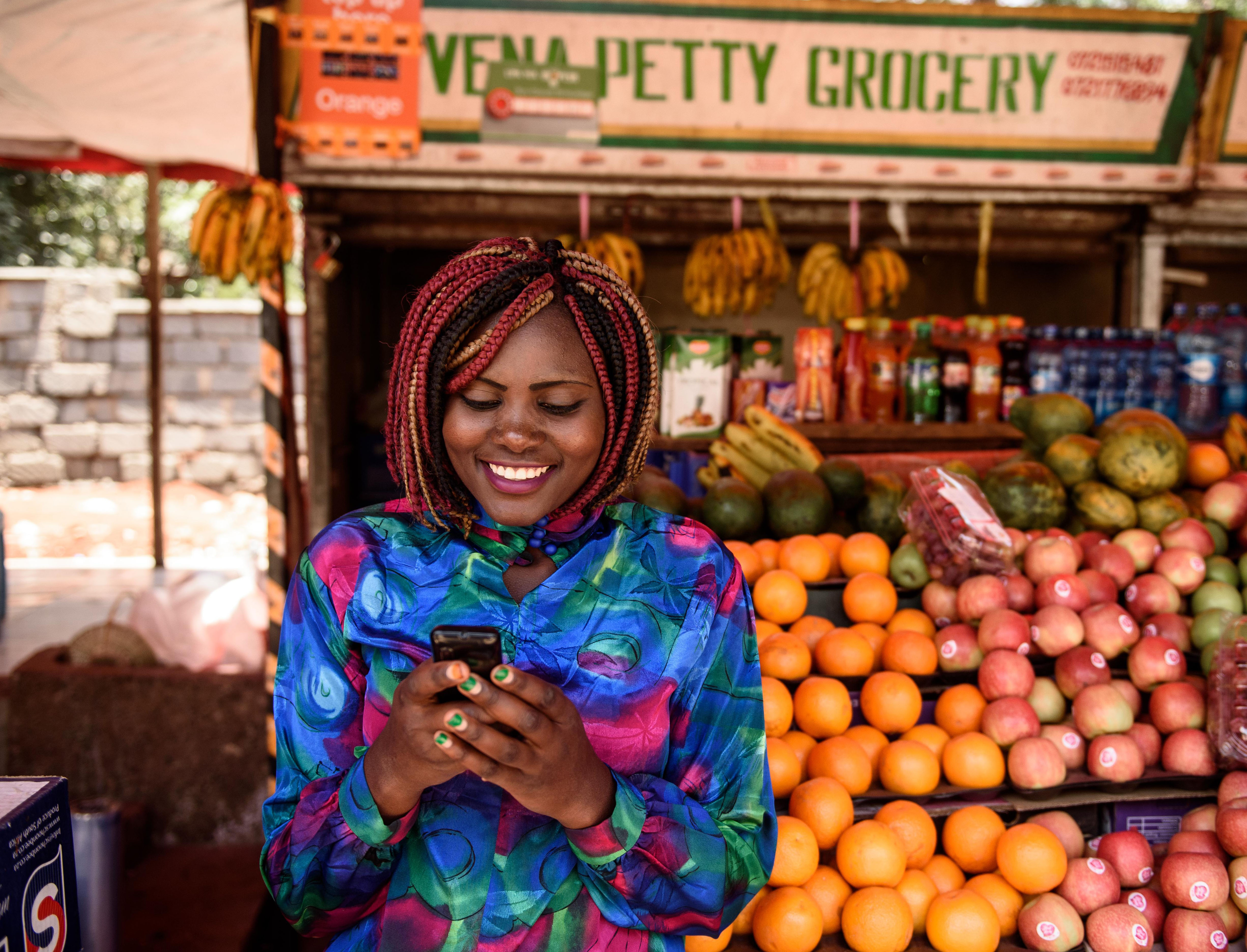Abstract
There are an estimated 411 million mobile money accounts worldwide, allowing even the poor in remote areas to send and receive money at low cost. How access to this financial tool affects long-term financial well-being, however, is not well understood. In Kenya, IPA worked with researchers to track the economic progress of households as the M-PESA mobile money service expanded over six years. In areas where M-PESA became more accessible, women were more likely to switch from farming to business occupations and to save more. Overall, an estimated 185,000 women changed occupations, and 194,000 households, primarily female-headed households, were lifted above the poverty line.
Policy Issue
How access to mobile money affects the poor’s long-term financial well-being remains largely unknown. Previous research from Kenya has shown that in the short term, households with access to the M-PESA mobile money system and could receive remittances were better able to weather economic shocks, improving their financial resilience. Other research has shown that easier access to money may have different impacts on men compared to women. However researchers do not yet know what impact simple access to mobile money services does for households in the long term.
Context of the Evaluation
The M-PESA mobile money service, which allows users to send and receive money via a simple SMS message, was introduced to Kenya in 2007 and spread rapidly. Later, other financial services, such as access to savings and credit were also made available through the service. M-PESA is used by at least one person in 96 percent of Kenyan households, who can deposit and withdraw money from their accounts through a network of local agents. In 2014 there were 110,000 mobile money agents in the country, but only 2,600 Automated Teller Machines (ATMs).
Details of the Intervention
Researchers worked with Innovations for Poverty Action to measure the economic impact on Kenyan households over time as M-PESA agent networks expanded across the country. In areas designed to be representative of the country, excluding one sparsely populated northern region, five rounds of household surveys were conducted between 2008 and 2014. M-PESA expansion happened on its own and could not be randomized. Rather, the change in numbers of M-PESA agents in local areas between 2008 and 2010 was measured. The change was then compared to 2014 economic outcomes of surveyed households in each area.
Results and Policy Lessons
In areas where M-PESA expanded more, the numbers of households living in poverty dropped, driven primarily by female-headed households. The drop was accompanied by a shift in women’s occupations from subsistence farming to business and retail occupations and a boost in savings.
Consumption: Poverty (defined as those living on less than $2 per day) and extreme poverty (living on less than $1.25/day) both dropped, driven primarily by female-headed households. For female-headed households, an area which went from zero to six M-PESA agents would have 22% fewer female-headed households living in extreme poverty than an area of the same size in which no new agents entered during the same time period (43.3 percent versus 34.1 percent). Similarly there was a 13 percent drop in those living on $2 day (66.6 percent to 58 percent) for female-headed households. There was no corresponding drop for male-headed households. Based on the sample, the researchers estimate 194,000 households nationally were moved above the poverty line.
Savings: Female-headed households in an area which went from zero to 6 M-PESA agents reported 22 percent higher financial savings than an area with no increase in M-PESA agents.
Occupational choice: Women in areas where numbers of M-PESA agents grew were more likely to change occupations from farming to business and retail sales, regardless of whether they lived in male-headed or female-headed households. Based on the sample, the researchers estimate 185,000 women switched occupations as M-PESA expanded in their local area.
Access the full Science paper from the link here.













